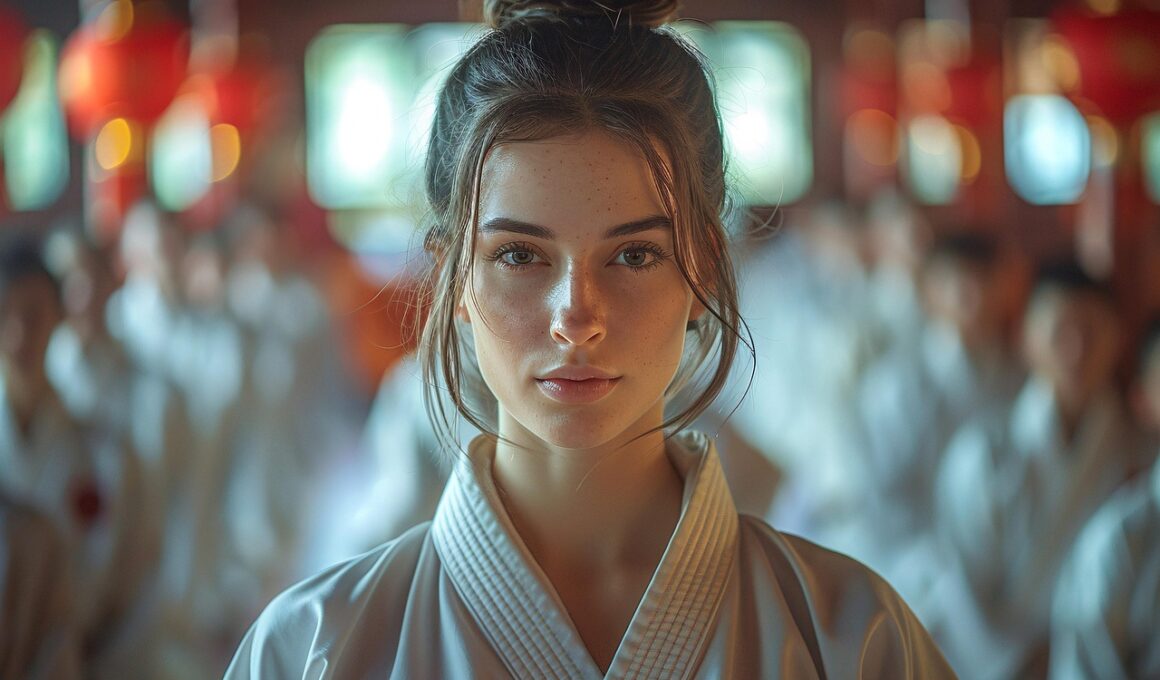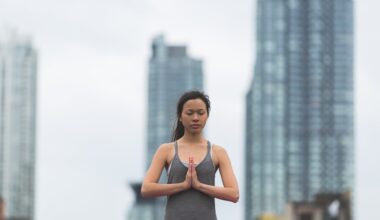The Role of Instructors in Martial Arts Schools: Learning from the Best
In the realm of martial arts schools, instructors serve as pivotal figures shaping the students’ experience. They are often revered not just for their skills but also for their ability to impart knowledge and character development. A competent instructor understands the importance of communication and establishes a strong rapport with students. This relationship fosters a supportive learning environment necessary for mastery in martial arts. Additionally, instructors emphasize discipline and respect, which are core tenets of various martial arts styles. They recognize that their role transcends mere physical training; they actively contribute to developing a positive mindset among students. An effective instructor regularly evaluates individual progress, focusing their attention on strengths and areas for improvement, thereby ensuring students remain encouraged throughout their journey. The best instructors also introduce concepts of self-defense, promoting safety and confidence. In doing so, they help students recognize their potential, both on and off the mat. Overall, instructors are the backbone of martial arts schools, as they educate, inspire, and motivate students to reach their goals and refine their skills through consistent practice and dedication.
Success in martial arts necessitates more than technical skills; instructors must exemplify traits such as patience and passion exemplary in their practice. Patience allows instructors to adapt their teaching style to cater to diverse learning paces, fostering an inclusive environment where every student can thrive. Effective communication is also crucial, as instructors must convey complex techniques in ways that are easily understood. Passion for martial arts motivates instructors to continuously improve themselves while inspiring similar enthusiasm in their students. This shared passion cultivates a sense of community within dojos, enhancing the learning experience. Instructors should regularly participate in seminars, workshops, and competitions to stay abreast of new techniques and philosophies. As they evolve, they can share their experiences and insights, enriching their students’ learning journey. In addition, great instructors regularly create opportunities for students to engage in challenges, like tournaments or sparring sessions. These activities encourage personal growth and resilience among students. Moreover, by setting high yet achievable expectations, instructors build confidence within their students, empowering them to strive for excellence while enjoying their martial arts journey together.
The Impact of Teaching Styles
Different instructors adopt diverse teaching styles, which can dramatically affect students’ learning experiences. Some embrace traditional methods steeped in history and culture, fostering a strong appreciation for martial arts heritage. Meanwhile, others adopt a more modern approach, incorporating contemporary training techniques and fitness principles. This blend of styles can be particularly beneficial in meeting the varying needs of students. Instructors should assess their students’ learning preferences and adjust their methods accordingly. The use of visualization techniques can also significantly enhance understanding of complex moves. When instructors demonstrate techniques, fostering a positive learning environment encourages inquiries and active participation. Instructors who create opportunities for peer-to-peer learning further enhance camaraderie, allowing students to support and guide one another. The ultimate goal remains the same: achieving mastery through consistent practice and dedication. In addition, instructors can utilize technology effectively, streaming instructional videos or conducting online classes. This adaptability not only helps in maintaining class engagement but also ensures students have access to further resources outside dojo hours. Each choice instructors make directly influences the effectiveness of their teaching, making it vital to be mindful of individual student dynamics.
Mastering martial arts involves a strong foundation built upon consistent practice and expert guidance. Instructors provide necessary corrections and insights to help students refine their techniques and form. This tailored feedback enables students to avoid developing bad habits. Moreover, observing seasoned instructors demonstrate techniques allows students to grasp intricacies they may not have realized otherwise. Instructors frequently share their experiences, providing invaluable lessons on overcoming challenges within their training journey. Moreover, they help emphasize the significance of mental fortitude, teaching students the importance of focus and determination in achieving their goals. By observing their instructors, students can better understand mental preparation techniques used during competitions or difficult training sessions. Additionally, instructors instill the importance of respecting opponents, a vital aspect of martial arts practice. This respect enhances camaraderie within teams and reduces the likelihood of arrogance or negativity in competitive scenarios. Thus, by offering both physical and mental training, instructors contribute to a well-rounded martial arts education. Ultimately, students who benefit from skilled instructors emerge as more capable martial artists, well-prepared to face the challenges that lie ahead in their martial arts journey.
Continuous Learning for Instructors
Instructors are lifelong learners too, continually enhancing their skills to better serve students. Completing various certifications and workshops ensures trainers possess the latest techniques and understanding of martial arts methodologies. Furthermore, they often attend seminars led by renowned martial artists to gain insight from elite practitioners. This ongoing education allows instructors to develop fresh strategies for training their students effectively. An instructor’s capacity to adapt their teaching style reflects their commitment to student development. They also benefit from connecting with other professionals in the field, sharing insights and experiences that inform their own practices. This sense of camaraderie among instructors fosters collaboration, leading to better teaching methods and community growth. Instructors who actively share knowledge cultivate environments rich in learning, making dojos more vibrant and engaging. Additionally, the integration of feedback, both from peers and students, helps instructors pinpoint areas for improvement. They encourage this same mindset among students, inspiring a culture of growth and resilience. Striving for continuous improvement ensures that martial arts schools remain relevant and valuable to the community as a whole, upholding the traditions and techniques passed down through generations.
Instructors also play an essential role in the emotional and social development of students. They often forge strong bonds, creating an environment where students feel safe to express fears and insecurities. This emotional support fosters trust and resilience, vital for achieving both physical prowess and personal growth in martial arts practice. Instructors frequently guide students in developing self-confidence, which transcends the dojo and benefits many aspects of life, such as academics and social interactions. The ability to defend oneself extends beyond physical defense; it encompasses mental strength and emotional intelligence, attributes that instructors instill through their teachings. Additionally, martial arts schools become a second home for many students, promoting a sense of belonging. By developing connections with fellow practitioners, students learn to work together toward common goals. This sense of community serves as a vital aspect of martial arts culture, contributing significantly to personal development. Instructors lead by example, demonstrating how to navigate both success and failure with grace. Consequently, students learn to respect individuality while embracing teamwork, forging lasting friendships that enhance the martial arts experience while developing camaraderie.
Conclusion: The Legacy of Instructors
In summary, the role of instructors in martial arts schools is multifaceted, encompassing teaching technique, fostering character growth, and creating a supportive community. Their effectiveness relies on their continuous learning and adaptability, ensuring that they provide the best possibilities for students. Passionate instructors sculpt the future in martial arts through their dedication and commitment to both physical and emotional development. Students flourish under their guidance, gaining confidence and resilience that reverberates in many aspects of their lives. Ultimately, the legacy of a great instructor is seen in the success of their students, many of whom go on to achieve commendable heights in martial arts and beyond. As students progress, they often return to their dojos as mentors, perpetuating the cycle of learning and growth initiated by their instructors. This generational passing of knowledge and experience strengthens martial arts communities, establishing a rich tradition of respect and dedication. Investing in the development of highly skilled instructors ensures the ongoing evolution of martial arts schools. Thus, we celebrate the integral contributions instructors make, serving as role models who inspire future generations to follow their martial arts paths with passion and purpose.
This is a placeholder for a concluding paragraph with exactly 190 words.


